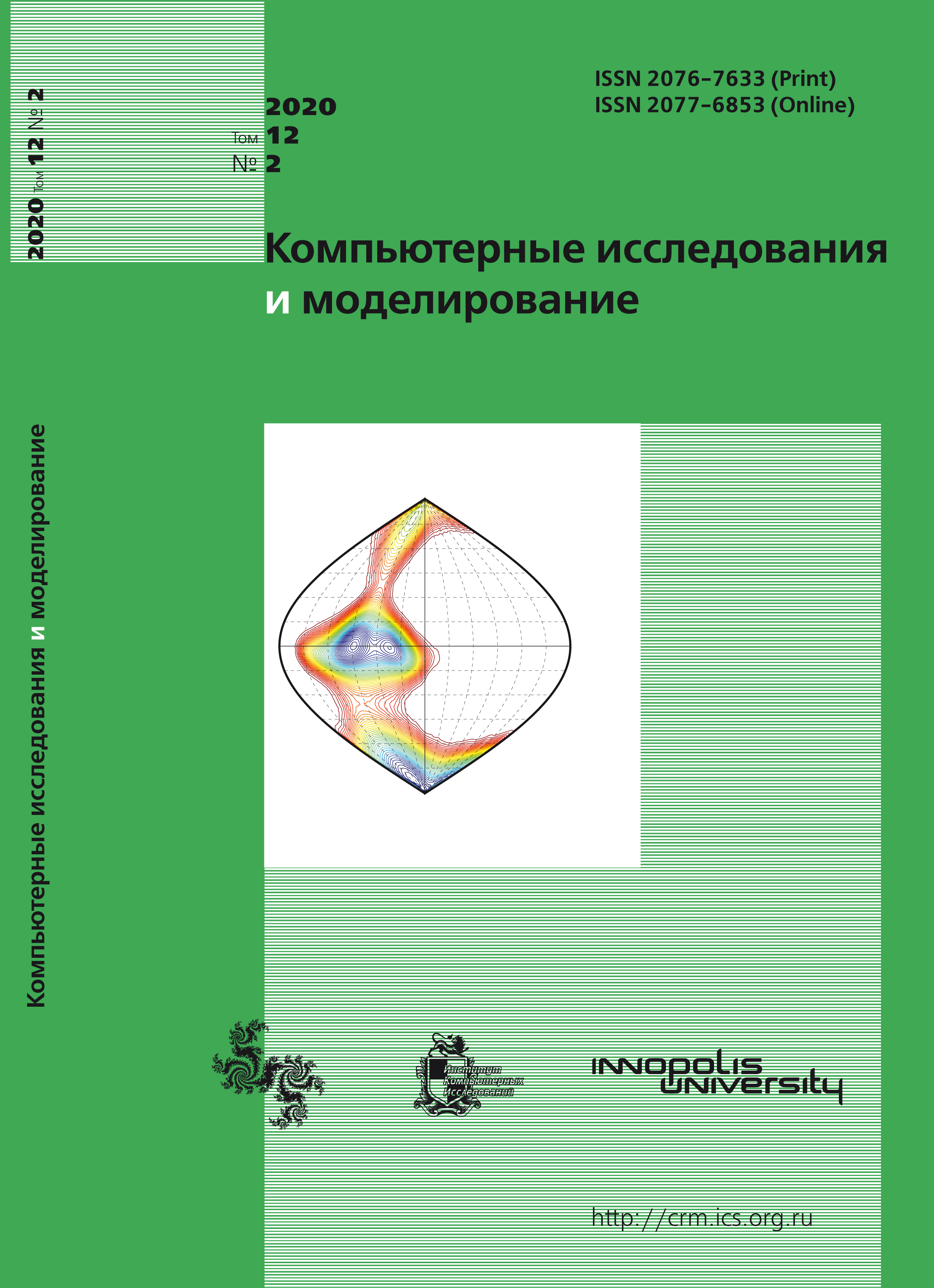All issues
- 2025 Vol. 17
- 2024 Vol. 16
- 2023 Vol. 15
- 2022 Vol. 14
- 2021 Vol. 13
- 2020 Vol. 12
- 2019 Vol. 11
- 2018 Vol. 10
- 2017 Vol. 9
- 2016 Vol. 8
- 2015 Vol. 7
- 2014 Vol. 6
- 2013 Vol. 5
- 2012 Vol. 4
- 2011 Vol. 3
- 2010 Vol. 2
- 2009 Vol. 1
Primal-dual fast gradient method with a model
 pdf (146K)
pdf (146K)
In this work we consider a possibility to use the conception of $(\delta, L)$-model of a function for optimization tasks, whereby solving a primal problem there is a necessity to recover a solution of a dual problem. The conception of $(\delta, L)$-model is based on the conception of $(\delta, L)$-oracle which was proposed by Devolder–Glineur–Nesterov, herewith the authors proposed approximate a function with an upper bound using a convex quadratic function with some additive noise $\delta$. They managed to get convex quadratic upper bounds with noise even for nonsmooth functions. The conception of $(\delta, L)$-model continues this idea by using instead of a convex quadratic function a more complex convex function in an upper bound. Possibility to recover the solution of a dual problem gives great benefits in different problems, for instance, in some cases, it is faster to find a solution in a primal problem than in a dual problem. Note that primal-dual methods are well studied, but usually each class of optimization problems has its own primal-dual method. Our goal is to develop a method which can find solutions in different classes of optimization problems. This is realized through the use of the conception of $(\delta, L)$-model and adaptive structure of our methods. Thereby, we developed primal-dual adaptive gradient method and fast gradient method with $(\delta, L)$-model and proved convergence rates of the methods, moreover, for some classes of optimization problems the rates are optimal. The main idea is the following: we find a dual solution to an approximation of a primal problem using the conception of $(\delta, L)$-model. It is much easier to find a solution to an approximated problem, however, we have to do it in each step of our method, thereby the principle of “divide and conquer” is realized.
Copyright © 2020 Tyurin A.I.
Indexed in Scopus
Full-text version of the journal is also available on the web site of the scientific electronic library eLIBRARY.RU
The journal is included in the Russian Science Citation Index
The journal is included in the RSCI
International Interdisciplinary Conference "Mathematics. Computing. Education"






